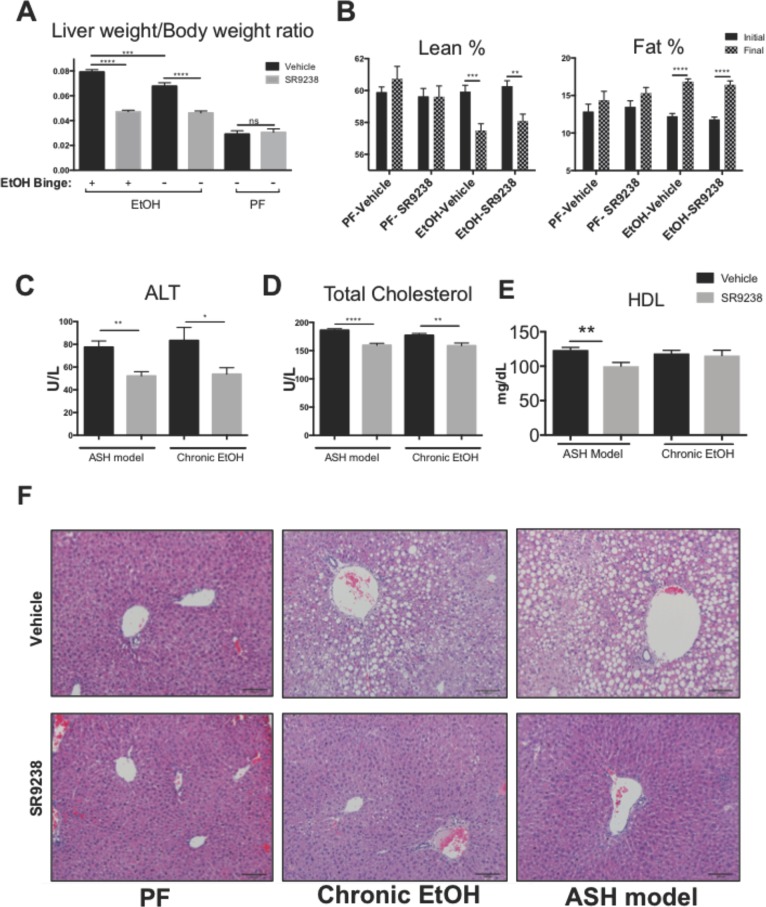Figure 1.
SR9238 protects mice against ethanol induced hepatic injury. (A) Whole liver weight normalized to total body weight of mice on Lieber DeCarli ethanol diet (EtOH) and Pair Fed (PF) controls with SR9238 treatment or vehicle. Mice received a 2.5 g/kg of ethanol binge (+) vs isocaloric maltose (−) 9 h prior to sacrifice (N = 10; results presented as mean ± SEM, two way-ANOVA performed). (B) % Fat and % lean showing differences in total fat mass and total lean mass per body weight before (initial) and end of (final) study (N = 10; results presented as mean ± SEM, two way-ANOVA performed). (C) Clinical analysis of plasma showing, SR9238 protects from alcohol induced hepatocellular damage and shows therapeutic properties by reducing ALT levels (N = 10; results presented as mean ± SEM, two way-ANOVA performed). (D) Clinical analysis of plasma from mice exposed to chronic EtOH and EtOH plus binge (ASH model) with or without SR9238 treatment. Levels of circulating plasma cholesterol decreased on SR9238 treatment (N = 10; results presented as mean ± SEM, two way-ANOVA performed). (E) Clinical analysis of plasma showing effect of SR9238 treatment on HDL levels (N = 10; results presented as mean ± SEM, two way-ANOVA performed). (F) Representative images of H&E staining of mice livers showing severe hepatocellular damage and inflammation with ballooning as well as micro- and macrosteatosis in vehicle treated liver sections, was rescued by SR9238 treatment (N = 6). ∗p < 0.05, ∗ ∗p < 0.01, ∗ ∗ ∗p < 0.001, and ∗ ∗ ∗ ∗p < 0.0001.

